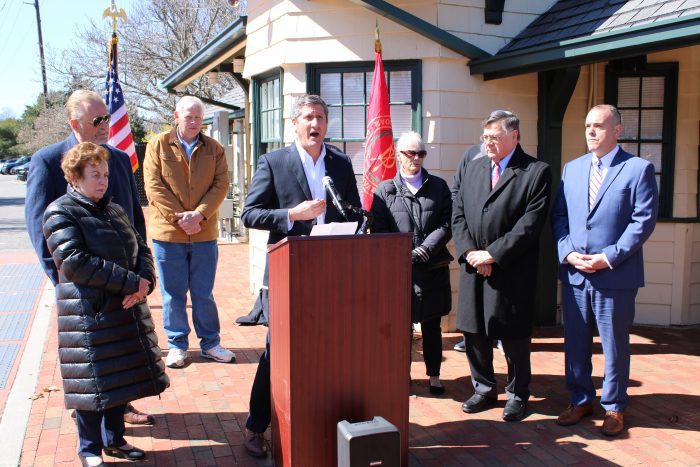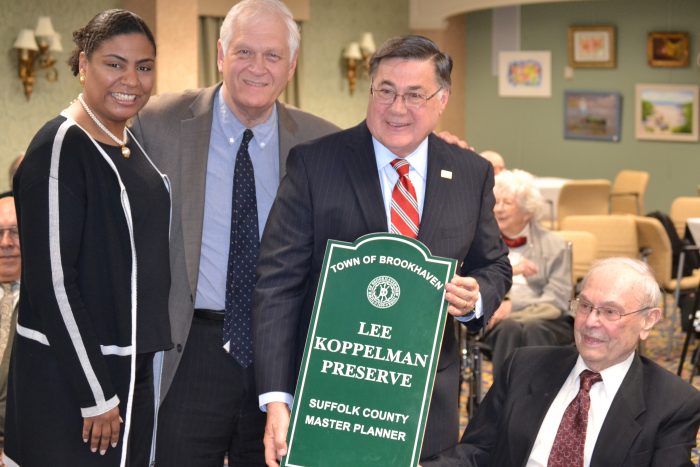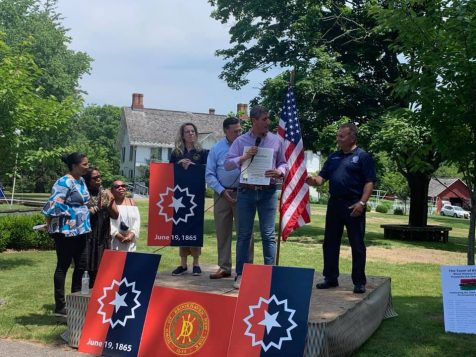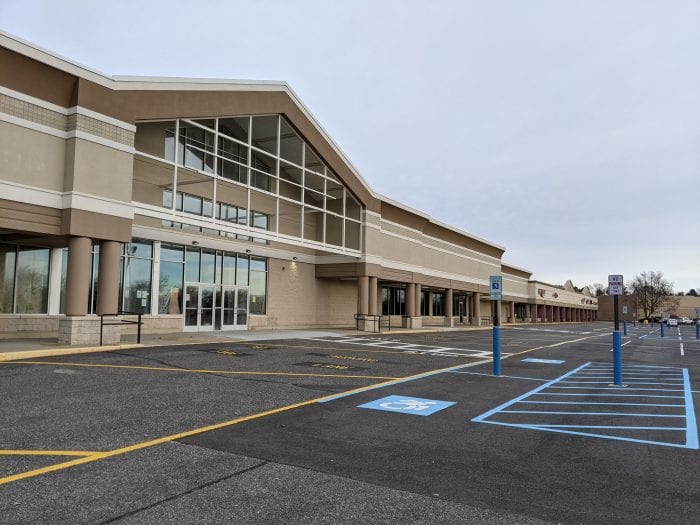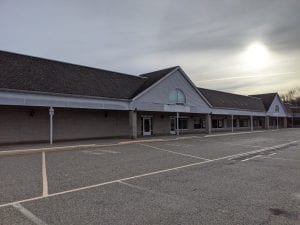Town of Brookhaven elected officials made it clear at a March 30 press conference how they feel about a plan proposed by Gov. Kathy Hochul (D).

The governor has included a housing program titled The New York Housing Compact in the 2024 state budget. Opponents say the proposal should be a stand-alone item and not incorporated in the budget which was due Saturday, April 1. However, on April 3, state lawmakers voted to extend the deadline to April 10.
Town deputy supervisor Dan Panico (R-Manorville) and councilmember Jonathan Kornreich (D-Stony Brook) joined town Supervisor Ed Romaine (R) at the March 30 press conference to express their concerns regarding the housing proposal. Members of the Three Village Chamber of Commerce, The Ward Melville Heritage Organization and Stony Brook Concerned Homeowners were also on hand to show their opposition to the governor’s plan.
In her State of the State message earlier this year, Hochul proposed the housing strategy calling for 800,000 new homes to be built in the state over the course of a decade to address the lack of housing. Among the plan’s requirements would be municipalities with Metropolitan Transportation Authority railroad stations to rezone to make way for higher-density residential development. All downstate cities, towns and villages served by the MTA would have a new home creation target over three years of 3%, compared to upstate counties that would need to build 1% more new homes over the same period.
Romaine criticized the plan setting goals that would eliminate current local procedures
“You are exempt from environmental concerns,” he said. “You don’t have to have sewers. There are no height restrictions. There is no community feedback and local zoning is ignored.”
Romaine said if the plan goes through it would cause quality of life issues, including more traffic and congestion on the roads.
“We need incentives because we need sewers,” the supervisor added. “We need infrastructure, and we are willing to work with the state. But if you seek to override zoning and impose against the will of the community housing that is not compatible, you are undermining the very fabric of the quality of life in Brookhaven Town.”
Panico echoed the supervisor’s sentiments and added there are areas in the town where multi-housing developments make sense due to town codes being amended.

“I can give you a couple of examples, right in Port Jeff Station, in Mastic Beach, in East Patchogue, in North Bellport,” Panico said. “Places that lend themselves to this type of development that are not overly constricted by traffic already.”
Kornreich also said the plan is misguided and that local control is important because elected officials possess the granular information to make decisions that are the best for the community.
“The point that my colleagues have made is that different areas have different challenges and require different solutions,” he said. “But we’re not here to engage in scare tactics, and this isn’t NIMBYism, we’re just trying to say a one-size-fits-all approach isn’t going to work community by community in the same way.”
Kornreich added plans are already in the works to “revitalize and redevelop a true downtown area around the train station in Port Jefferson Station, just one stop down the line from here, and create a walkable neighborhood with diverse housing stock that people can actually afford.”
The councilmember said near the Stony Brook station, where the press conference took place, “is not a downtown that can bear any real intensity.”
He added there are no privately held plots around the Three Village train station large enough for major development.
Jane Taylor, executive director of the Three Village Chamber of Commerce, said housing plans need to take into consideration local zoning, location and consider community support.
“Being told by the state that we have to do it creates landmines for those of us who live here,” Taylor said. “We’ve got concerns about sewers, our water supply. Those are all things that are very important and need to be addressed.”
Gloria Rocchio, WMHO president, thanked Romaine for “shining a spotlight” on the issue.
“While Long Islanders, traveling back and forth to work trying to make a living, not really knowing what’s happening, this negative zoning proposal is looming,” she said. “It will change our beautiful Island forever. The reason that Long Island is the way it is now is because of local elected officials working together with residents.”

